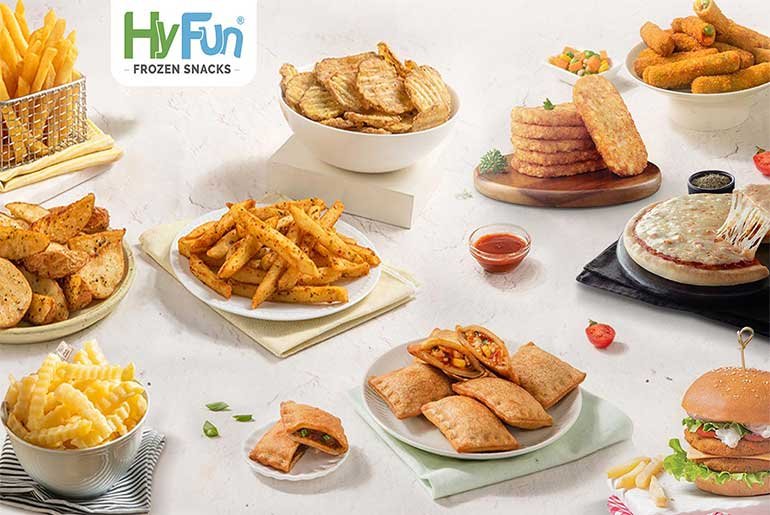Saturday, 22 November 2025

Ahmedabad-based HyFun Foods, a rising star in India’s frozen-food sector, has announced an ambitious target of generating Rs 1,500 crore in revenue in fiscal year 2025–26 (FY26) while simultaneously preparing for an initial public offering (IPO) by 2028. The company, which specializes in frozen potato products, plans to leverage both domestic demand and export opportunities, coupled with investments in production capacity, supply chain infrastructure, and brand building, to achieve this dual goal.
HyFun’s integrated business model is increasingly proving its competitive edge. By engaging directly with farmers—from seed to shelf—the company ensures quality control, scale efficiencies, and a consistent supply of raw materials.
While exports have historically contributed around 70 per cent of its revenue, HyFun is now pivoting more aggressively toward the domestic market, with frozen foods projected to contribute nearly half of total revenues in the coming years. Capital investments are central to this strategy, with a reported outlay of around Rs 1,000 crore this year, including one of Asia’s largest production lines for frozen French fries and specialty potato products.
Several structural trends underpin HyFun’s growth ambitions. Rising urbanization, dual-income households, and evolving consumer lifestyles are driving demand for convenient, ready-to-cook frozen foods. Favorable policy measures, such as GST reductions on processed foods, further support the sector.
On the export front, HyFun is positioning India as a competitive alternative to European and U.S. suppliers in Southeast Asia, the Middle East, and East Asia, tapping markets that offer higher margins. Scale, vertical integration, and an expanding cold chain infrastructure provide additional advantages, while product diversification—into items like paneer patties, parathas, samosas, and onion rings—helps capture domestic taste preferences and mitigate over-reliance on potatoes.
Despite the positive momentum, HyFun faces significant execution risks. Maintaining a continuous cold chain from production to point of sale is critical, especially in Tier II and III cities where freezer culture is limited. Consumer perception challenges persist, with frozen foods often considered “processed” or less healthy. Large upfront capital requirements, regulatory and trade uncertainties, competition from established international suppliers, and the operational complexities of scaling production add further layers of risk.
To address these challenges, HyFun is pursuing a multi-pronged strategy. The company is focusing on phased capacity ramp-ups, strengthening partnerships with cold storage and logistics providers, educating consumers on nutritional and safety benefits, and closely monitoring per-unit costs to maintain healthy margins. Balanced growth across domestic and export markets, regulatory preparedness, and rigorous governance standards will be critical, particularly as the company positions itself for a future IPO.
Looking ahead, HyFun aims to achieve Rs 5,000 crore in revenue by FY29, with roughly half coming from domestic sales. The IPO, expected between FY26 and FY29, will provide the capital to accelerate production, expand cold chain infrastructure, diversify product offerings, and scale operations further. The company’s leadership believes that careful execution, combined with rising domestic consumption and global export opportunities, can establish HyFun as a leading name in India’s frozen-food landscape.
If successful, HyFun Foods’ dual pursuit of rapid growth and public listing will not only reflect confidence in India’s evolving consumer markets but also underscore the country’s potential to compete with global suppliers in the frozen foods segment.